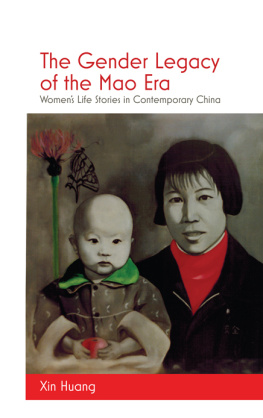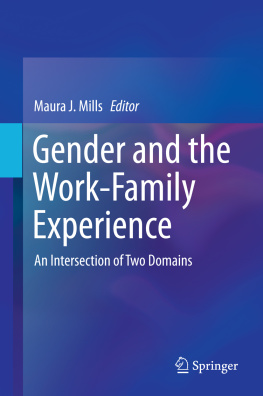Foundations of Social Inquiry
First published 1996 by Westview Press
Published 2018 by Routledge
711 Third Avenue, New York, NY 10017, USA
2 Park Square, Milton Park, Abingdon, Oxon OX14 4RN
Routledge is an imprint of the Taylor & Francis Group, an informa business
Copyright 1996 by Leonard Beeghley
All rights reserved. No part of this book may be reprinted or reproduced or utilised in any form or by any electronic, mechanical, or other means, now known or hereafter invented, including photocopying and recording, or in any information storage or retrieval system, without permission in writing from the publishers.
Notice:
Product or corporate names may be trademarks or registered trademarks, and are used only for identification and explanation without intent to infringe.
Library of Congress Cataloging-in-Publication Data
Beeghley, Leonard.
What does your wife do? : gender and the transformation of family
life / Leonard Beeghley.
p. cm. (Foundations of social inquiry)
Includes bibliographical references and index.
ISBN 0-8133-2634-6 (he). ISBN 0-8133-2635-4 (pbk.)
1. FamilyUnited States. 2. Sex roleUnited States. I. Title.
II. Series: Foundations of social inquiry (Boulder, Colo.)
HQ536.B42 1996
305.3dc20
95-49155
CIP
ISBN 13: 978-0-8133-2635-1 (pbk)
This book describes fundamental changes in the ways women and men organize their lives together. It focuses on four interrelated issues that are central to family formation and maintenance: premarital sex, abortion, divorce, and employment and income.
In trying to understand these subjects, I have found it useful to begin by looking at historical and international data. Examining changes over a time span of at least a century and across societies comparable to our own lends perspective and leads to productive questions. Once the facts are known, it is also useful to distinguish between levels of analysis: individual versus structural. As it turns out, for each of the issues considered here, the variables explaining individual actions are always social psychological whereas the variables explaining rates of behavior are always structural. Although structural analyses remain surprisingly rare in sociology, they are especially important for understanding gender relations and the transformation of family life. This is because the story of the past century or so is about increasing choice in human affairs, which reflects changes in the social structure.
Yet coping with these changes is sometimes not easy. My ten-year-old son and I recently attended a father-son basketball camp (actually, he attended, I survived). The name of the camp, of course, implied who ought to be there. Just a few years ago, the name would have been appropriate: No girls, let alone mothers, would have attended. The opportunity to learn basketball skills and to be competitive provides an example of how social life is gendered, giving advantages to boys over girls, men over women. Nonetheless, times are changing and among the 250 or so attendees were several adolescent girls and one mother. Alas, the coach running the camp never did get his language straight, continually referring to fathers and sons only to catch himself and mention mothers and daughters or fathers and daughters as a sort of add-on. It all became very complex. But more than linguistic complexity was involved. Because he did not simply refer to parent and child, the coach (a man of good will, by the way) pointed out the existence and oddity of these girls at every gatheringmaking their lives more difficult simply because they wanted to shoot hoops.
Although this camp was a minor event, its changing composition symbolizes how old ways of interacting are being transformed, not all at once and not easilysupporters are often ambivalent, opponents are afraidbut being transformed nonetheless. As such, the camp provides a microcosm of a larger dilemma. The appearance of women in new settings signifies greater equality, but it is slow going. In the end, however, if young women can drive to the hoop as the equals of young men, it seems like they ought to be equal in other ways as well. In family life, for example.
Yet some people fear this change; after all, it is not easy to reject longstanding practices. Thus, the critique of equality in family life, and indeed of increasing choice in many arenas, is that it represents the decline of traditional moral values. We are becoming, it is said, decentered and demoralized, afflicted with a relativistic ethos that anything goes. As the poet William Butler Yeats put itin another time and place, to be sure (1933:185):
Turning and turning in the widening gyre
The falcon cannot hear the falconer;
Things fall apart; the centre cannot hold;
Mere anarchy is loosed upon the world,
The blood-dimmed tide is loosed, and everywhere
The ceremony of innocence is drowned;
The best lack all conviction, while the worst
Are full of passionate intensity.
The fear, in short, is that we are becoming a society without values as guides for behavior. This is, of course, a legitimate concernif it were accurate. In reality, this stance simply expresses a preference for one value over another. It dictates that women ought to remain cheerleaders and men players, and it condemns the transformation of this situation as the decline of traditional moral values.
Others embrace the movement of women onto the court as players and the implications this symbol has for changes in mens and womens relationships. Equality, after all, is also a moral stance, a traditional value. From this angle, the story of the past two centuries is also one of value generalization, of struggling to apply general principles of right and wrong to wider segments of society: to women as well as men, to African Americans as well as whites. Perhaps the center is being reconstructed on a firmer basis.
In this context, you have a right to know where I stand. I support (imperfectly, to be sure) the changes in family life described in this book. I believe that in order for women and men to be equal, women must be able to choose whether to become sexually active, control their fertility, or remain in a marital relationship. Of course, the ability to earn a living underlies these issues; without that, womens and mens choices are severely restricted. Although these beliefs would ordinarily be private matters, it is useful to state them here because they may affect how the changes described here are interpreted.







